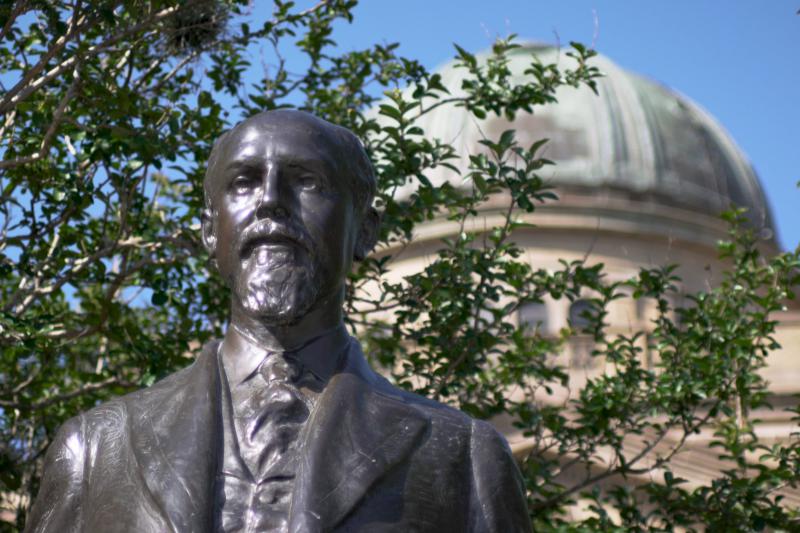From KERA:
Protesters continue to push for the removal of Confederate monuments across Texas. But it’s not just statues that are stamped with that chapter of history. Texas counties — and even a state university — bear Confederate names.
On the campus of Texas A&M University, chanting protesters and counter-protesters clashed recently over the 102-year-old statue of Lawrence Sullivan Ross. Also known as Sully, Ross was the 19th governor of Texas and a president of A&M. He was also a general in the Confederate Army. Some Aggie students and alumni demanded the statue come down. Others said no way. As of now, the statue still stands.
This Sully schism swelled after a white Minneapolis police officer killed George Floyd, an unarmed Black man.
In far west, rural Texas, 500 miles away, hundreds marched for Black Lives Matter. The town of Alpine, population 6,000, is home to Sul Ross State University.
“It would take an act of the Legislature to change it,” said Pete Gallego, the new president of the school.
He should know, because he’s a former Congressman and state legislator.
“There’s nothing I or anyone can do locally that would have any impact on the name of this university,” said Gallego.
The school president said while most everyone on campus knows Ross’ history, he’s heard no one demand a name change. The school is considering renaming some buildings to recognize the university’s first Black and Latino graduates.
Southern Methodist University history professor Ariel Ron said there is a precedent for changing school names.
“During the American Revolution, they toppled a statue of King George in New York,” Ron said. “They renamed King’s College Columbia University. That’s an American thing to do, they‘ve done this around the world.”
In the case of Ross, historians say any name change is complex, because of his Confederate involvement and his career in public service and education.
Gregg Cantrell, a Texas Christian University history professor, applies this test.
“Is the person remembered primarily because of their defense of slavery, their service to the Confederacy or anything else sort of relating to racism?,” Cantrell asks.














